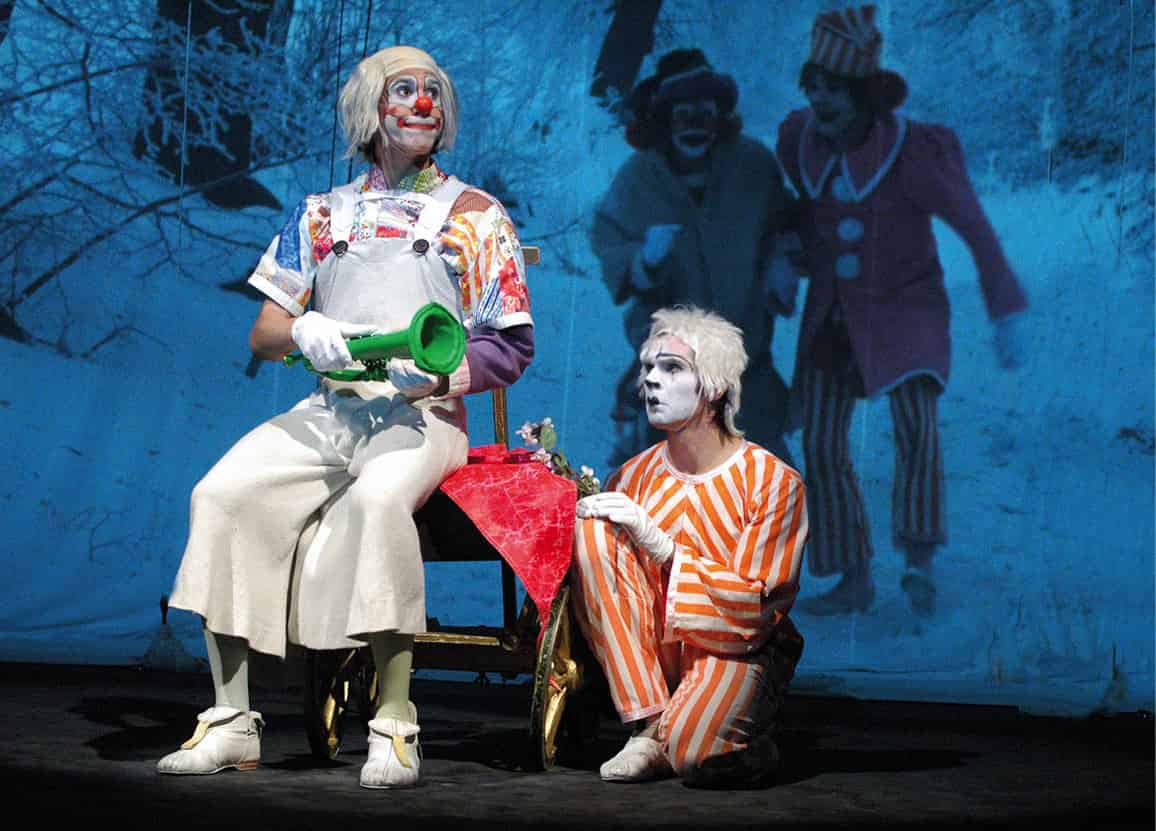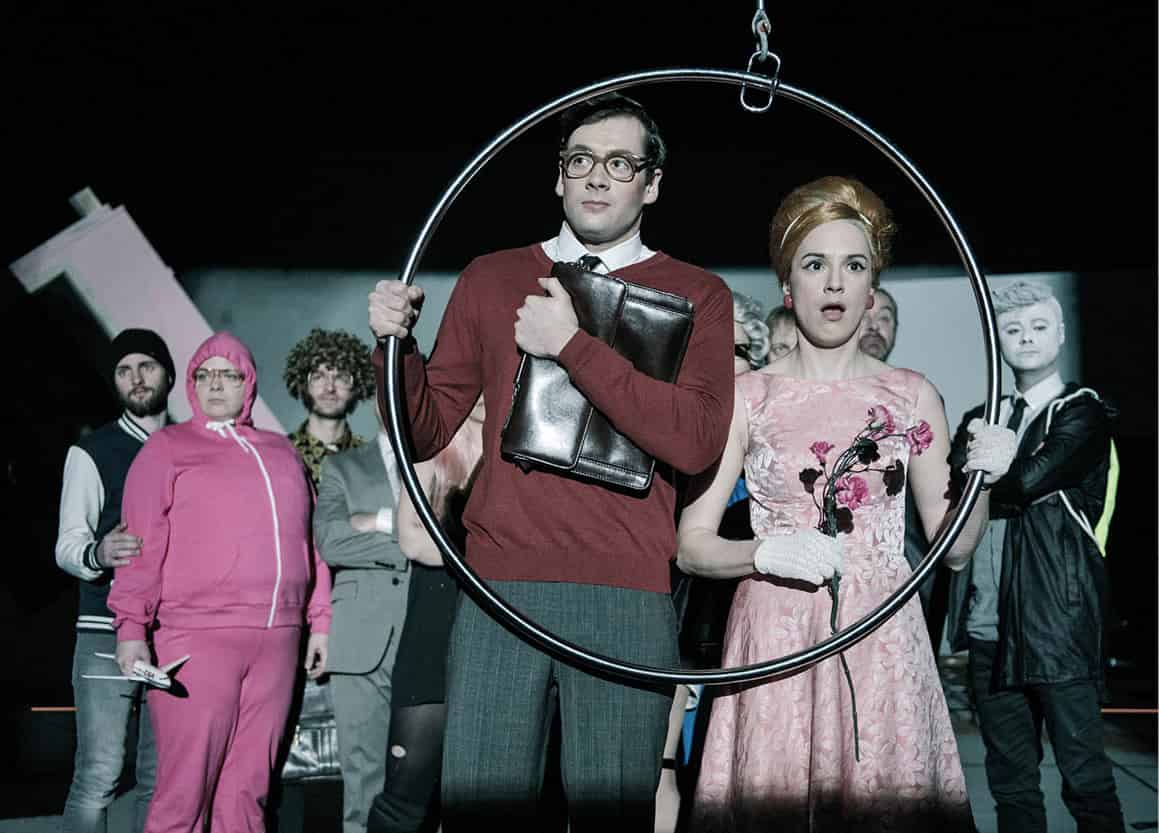Prague can rival any other capital city in Europe when it comes to choice in entertainment. There really is something for every taste from the vibrant cultural scene both in classical and modern performance to cocktail bars and clubs, traditional Czech folklore evenings and opera to beer tastings and river dinner cruises.

Black Light theatre performance at Laterna magika
Petr Našic/Národní divadlo
Music
Concerts of classical music, mainly chamber ensembles, are held in churches and historic buildings across the city. Some are aimed solely at tourists; the standard is not always particularly high, and the repertory is fairly predictable. There are also, however, some exceptional venues, putting on some of the best concerts to be heard anywhere.
The Czech Philharmonic is one of the world’s great orchestras, and seeing one of its concerts at the Rudolfinum is a real event. The city’s other major resident orchestra is the Prague Symphony Orchestra. Less well known than the Czech Philharmonic but still excellent, it performs its concerts in the splendid Obecní dům (for more information, click here) from September to June. A third orchestra, the Prague Radio Symphony Orchestra, is also resident in the city. Although primarily a recording ensemble for Czech Radio, it puts on a fine concert series in the Rudolfinum between October and March. It is an outstanding orchestra, often including contemporary works in its programmes.
One of the most high-profile chamber ensembles is the Suk Chamber Orchestra, founded in 1974 by world-renowned violinist Josef Suk (1929–2011; grandson of the famous composer of the same name). It tends to concentrate on the core Czech repertory. Two orchestras established since 1989 and starting to make an international name for themselves are the Prague Philharmonia and the Czech National Symphony Orchestra.

National Theatre play
Petr Neubert/Národní divadlo
Opera and ballet
The quality of opera performances in Prague is high. Most opera is sung in its original language with digital surtitles in Czech. (Performances of works by Czech composers such as Dvořák and Smetana do not have surtitles in foreign languages.)
The National Theatre Ballet frequently performs classics such as Swan Lake and Coppélia, but has been branching out in more adventurous directions in recent years by including choreographies by George Balanchine and Jiří Kylián. The Prague State Opera Ballet is a medium-sized company, which incorporated the Prague Chamber Ballet in 2003.
Jazz
Prague has a lively and very well-established jazz scene, with a number of decent clubs that at times attract big-name foreign artists. However, there are also several excellent local players who can be seen nightly at the city’s clubs – notably bass-player Robert Balzar, jazz pianist Emil Viklický and guitarist Luboš Andršt.
Theatre
Theatre in Prague has a long and venerable tradition – as might be expected in the capital of a country that, in 1989, chose a playwright as its first post-Communist president. There is still a lively theatrical scene in Prague, but, unless you are fluent in Czech, little will be accessible.
Probably of more interest to non-Czech speakers – and to children – are Prague’s puppet theatres and the so-called ‘Black Light’ theatre developed for the 1958 World Expo. The most popular puppet show uses Josef Skupka’s time-honoured characters of Spejbl and his son Hurvínek, and there are avant-garde, highly original performances as well. A good place to watch a performance is the National Marionette Theatre (Žatecká 1; tel: 224 819 322; www.mozart.cz).
During performances of Black Light theatre – the most famous company is at the Laterna magika – films and slides are projected onto multiple screens while actors, dressed completely in black to render them invisible, perform on stage, accompanied by a clever play of coloured lights. A certain amount of acrobatic skill is also often required of the actors.
Film
There is a long tradition of Czech film in a variety of genre (for more information, click here) and annual film festivals are popular events. For the latest blockbuster films in English there are several Cinema City multiplexes throughout Prague, the most central in Na Příkopě on the southern edge of the Old Town. For art-house cinema try Kino Aero at Biskupcova 31 where many screenings are in English.
Nightlife
Prague is not a leading centre of nightlife in the way that London, Berlin or New York are, but it still endeavours to hold its own against smaller European capital cities. Generally speaking, it’s a good idea to avoid the places in the Wenceslas Square area, which tend to attract either mobs of teenage tourists or a rather seedy crowd; most local people don’t go near such places. The better clubs can be found sprinkled all over the city, and there is no single best area for nightlife. Clubs usually start around 11pm and stay open until 4am; some stay open later. Up-to-date nightlife listings can be found on the Czech-language site www.techno.cz. Further listings can be found on www.expats.cz.